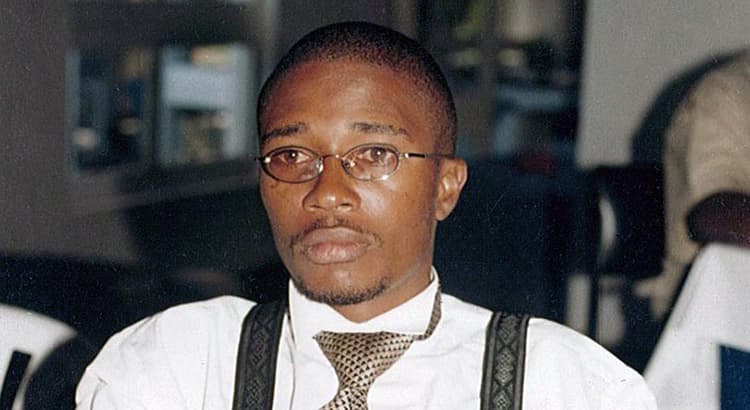YAOUNDÉ, Cameroon – Against the backdrop of a scourge of corruption estimated to cost the African continent $140 billion every year, Pope Francis has authorized the beatification of a new anti-corruption martyr from the Democratic Republic of Congo.
Floribert Bwana Chui Bin Kositi, a young customs officer, was killed in 2007 after refusing to take a bribe.
Floribert had been employed in the eastern city of Goma by the Congolese Control Office (OCC), a public body responsible for ensuring the quality, quantity, and conformity of goods to national and international standards. Among other things, the work involves physicochemical and microbiological analyses of sampled items.
In the course of his duties, Floribert intercepted a shipment of spoiled rice from Rwanda, intended for the Congolese market, which could have had severe health consequences for consumers. Despite being offered bribes by the traders, Floribert steadfastly refused to allow the tainted cargo to pass.
When the bribes turned into threats, he still did not relent. On July 7, 2007, unknown assailants forced him into a car. Two days later, on July 9, his lifeless body was discovered in a vacant spot near the site of his abduction.
It was determined that Floribert had been tortured and beaten before being killed. He was just 26 at the time of his death.
On Nov. 25, Pope Francis authorized the Vatican’s Dicastery for the Causes of Saints to promulgate the decree concerning his martyrdom, asserting that the young Congolese civil servant was killed “in hatred of the faith.”
His example has been hailed as the way Biblical truth must be lived.
“I think the example of Floribert Mbwana is a challenge to all of us as Africans, and as people who have consciences, to realize that we do not need a majority when it comes to morality,” said a leading priest and researcher from Cameroon, Father Humphrey Tatah Mbuy.
In comments to Crux, Mbuy said, “There is no harm in being right alone, and Floribert shows an example of what we should be doing. In fact, if we were convinced and convincing Christians, that’s the attitude that we should take. It doesn’t matter who is concerned. Wrong is wrong, and right is right. That’s the only way by which we will eliminate bribery in our society.”
“If some people imitate the example of Floribert and stand up for what is right on questions of principle, it doesn’t matter who comes in between and who wants to ruffle us up. I think the example is a beautiful example for all Christians, for all Africans and for every human being,” Mbuy told Crux.
In an interview on RFI, Floribert’s Mother, Kamara Ntawiha Gertrude, said the Vatican’s decision to beatify her son is a result of his integrity and commitment to God’s Word.
“He was a boy who loved prayer,” she said.
“It’s really something that has brought great joy to the whole family, “she said of the impending beatification.
“This is how we glorify God, the Catholic Church and the Community of Sant’Egidio. I love young people, and I ask them to follow Floribert’s example,” she added.
Floribert was linked to the Community of Sant’Egidio, which has welcomed his forthcoming beatification, saying in a statement that his example “helps us understand the new forms of martyrdom.”
“It was a silent sacrifice, so far away from the focus of the media, which nevertheless shakes the social and political life of those countries where corruption has become commonplace,” the statement says.
In 2015, Pope Francis pointedly spoke about corruption when a young woman asked him if corruption could be justified simply because everyone is corrupt.
The Pontiff responded by stating, “Corruption is something which creeps in … Whenever we take a bribe, or pocket a kickback, we destroy our heart, we destroy our personality, we destroy our country.(…) As in everything, you have to make a start. If in your heart you don’t like corruption, if you do not want corruption in your life or in your country, then start now! If you don’t start, your neighbor won’t start either. “
The pontiff added that “corruption is not the way to life. It is a path which leads to death.”
When Pope Francis met young Congolese in Kinshasa’s Martyrs Stadium in 2023, he cited Floribert as an example, recalling his sense of sacrifice.
“As a Christian, he prayed, thought of others and chose to be honest by saying no to the filth of corruption’, the pontiff recalled.
Floribert also put himself at the service of street children, and was committed to peace and reconciliation in his country. A school bears his name in a refugee camp in Goma.
Floribert Bwana’s beatification, set for the Jubilee Year 2025, follows that of three other Congolese: Isidore Bakandja, Marie-Clementine Anuarite and Albert Joubert. Albert Joubert was a Congolese priest who was recently beatified along with two of his Italian companions in Uvira.
Last year, a deputy chair of the African Union estimated that Africa loses on average $60 billion in illicit financial flows and more than $140 billion to corruption. According to Transparency International’s Global Corruption Barometer, one in four users of public services in Africa pays a bribe, significantly affecting access to services such as healthcare and education. The worst impacts, according to the organization, fall upon woman, girls and marginalized communities.
Various studies show that low-income households in Africa spend a significant portion of their income on bribes, harming their prospects of escaping poverty and also retarding economic development on the macro level.














